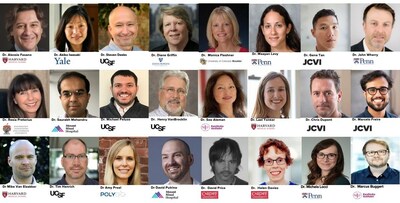PolyBio Research Foundation has announced a $15M gift from Kanro: a philanthropic fund to support scientific research established by Vitalik Buterin , co-founder of Ethereum.
|
This will allow research and clinical trials centered on SARS-CoV-2 persistence as a driver of Long COVID to move to the next phase MEDFORD, Mass., Nov. 1, 2023 /PRNewswire/ -- PolyBio Research Foundation has announced a $15M gift from Kanro: a philanthropic fund to support scientific research established by Vitalik Buterin, co-founder of Ethereum. The funding will support a second phase of research and clinical trials via the LongCovid Research Consortium (LCRC): a global scientific collaboration to rapidly and openly study core biological drivers of Long COVID. This is Buterin's second $15M gift to the Consortium and will allow dozens of new projects to move forward. $15M gift accelerates research and clinical trials centered on SARS-CoV-2 persistence as a driver of Long COVID
The focus will be the continued study and treatment of SARS-CoV-2 persistence as a driver of LongCovid. LCRC research thus far demonstrates that reservoirs of the virus can persist for months - or even years - in the tissue of Long COVID patients. "Mechanisms underlying Long COVID are not a mystery," says Dr. Amy Proal PhD, PolyBio's Chief Scientific Officer. "The persistence of SARS-CoV-2 in tissue is a major target for rapid research and clinical trials." This is echoed by Buterin who states, "The research thus far [...] strongly suggests we should be looking at viral persistence as the deep cause of Long Covid." The LCRC Consortium recently published a Nature Immunology paper explaining that SARS-CoV-2 reservoirs may cause widespread dysfunction including clotting, microbiome, and neuroimmune abnormalities. Better documenting these connections and determining mechanisms by which persistent virus could contribute to Alzheimer's or other neurodegenerative diseases are priorities for the research program. LCRC will also work to start clinical trials of affordable generic drugs to target persistent virus. At the University of California San Francisco School of Medicine an expanded tissue biopsy program will allow researchers to better understand where SARS-CoV-2 may be hiding in clinical trial participants. "We are now adding gut and lymph node biopsies, spike protein measurement and other analyses to several Long COVID clinical trials," says Michael Peluso MD, Assistant Professor of Medicine and Principal Investigator of the UCSF Long-term Impact of Infection with Novel Coronavirus (LIINC) Study. Funding will also support Long COVID medical clinic development to rapidly translate LCRC research and clinical trial findings into much-needed patient care through collaboration with the Icahn School of Medicine at Mount Sinai. This includes the development of Long COVID-related clinical education programs for physicians and advanced practice providers, which will be available online for free. Mount Sinai's Cohen Center for the Recovery from Complex Chronic Illness (CoRE) will also add HEPA filters and germicidal UV devices to its building to clear airborne viruses and other aerosols from the air, and require N95 respirator use and regular COVID PCR testing from its staff. This infrastructure can be easily replicated at other centers. "People with Long COVID have the right to access care in spaces where they feel safe and do not have to fear reinfection," says David Putrino, The Nash Family Director of the CoRE. LCRC teams are moving rapidly and openly to share ideas and samples across dozens of different institutions, laboratories, and clinics. The collaboration includes scientists and clinicians from Harvard Medical School, the J. Craig Venter Institute, Johns Hopkins University, University of Pennsylvania, the Icahn School of Medicine at Mount Sinai, University of California San Francisco, and the Karolinska Institute among others. "The fact that every new SARS-CoV-2 infection may have the potential to become chronic and cause devastating illness is perhaps the single most concerning aspect of the COVID-19 pandemic," says Proal. "Only by working rapidly and collaboratively can we truly determine how to prevent and treat SARS-CoV-2 persistence." CONTACT: Amy Proal, info@polybio.org
SOURCE PolyBio Research Foundation |





